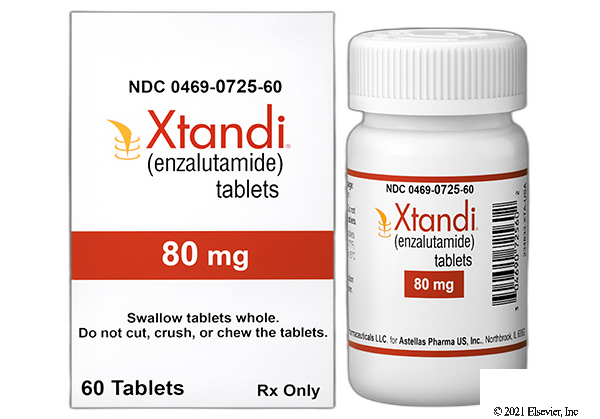
Senator Bayh (left) with AUTM Executive Director Vicki Loise.
Yesterday, I attended the 30th Anniversary Celebration of the University and Small Business Patent Procedures Act, more commonly known as the Bayh-Dole Act. The program was led by the Association of University Technology Managers (AUTM) and took place at the Washington Convention Center in Washington, DC. The Act, which was enacted on December 12, 1980, created a uniform patent policy among the federal agencies that fund research, enabling small businesses and non-profit organizations, including universities, to retain title to inventions made under federally-funded research programs. The celebration was moderated by Dr. Ashley Stevens, the current President of AUTM and Special Assistant to the Vice President for Research at Boston University. Dr. Stevens began the celebration by pointing out that since the Bayh-Dole Act was enacted, more than 7,000 new companies that have been formed specifically to develop technologies that are invented at Universities. Whole new industries, such as the biotechnology industry, have been also been created around and started as a direct result of university research.
Exclusive Interview with United States Senator Birch Bayh
Discussing the legislation, innovation and patent reform w/ Gene Quinn

Left: AUTM President Dr. Ashley Stevens; Right: USPTO Deputy Director Sharon Barner
Dr. Stevens Introduced Sharon Barner, the Deputy Under Secretary of Commerce for Intellectual Property and Deputy Director of the United States Patent and Trademark Office. Barner stated: “Innovation is the only sustainable source of competitive advantage for world economies. ” She went on to say: “As the distance between invention and marketplace is shrinking, IP is fast becoming the world’s currency of innovation.” She explained our nation stands at a critical junction of it’s economic evolution and that innovation is vital in driving economic growth.
Barner went on:
Research conducted at American Universities fosters innovation, insures economic opportunity and creates American jobs. At the USPTO, The Department of Commerce and across this Administration we are committed to insuring the best environment for successful R&D outcomes from our nations universities.
Next Dr. Stevens introduced Senator Birch Bayh and Michael Connor. Connor is a partner at Alston & Bird, where Senator Bob Dole is currently located; he participated in the event on behalf of Senator Dole who could not attend due to health issues. In response to the wonderful words being spoken of him and the Act, Senator Bayh had this to say:
After listening to President Stevens, I think my late wife’s suggestions on such occasions would be perfect. It’s alright to listen to all of those fancy words and the kind and nice things that people say about you, just don’t inhale. So I guess that means I can start breathing now.
Needless to say that brought about quite a chuckle from those in attendance. Senator Bayh told the story of how the Bayh-Dole Act was conceived, giving credit to those sometimes referred to as the founding fathers of the Act, who held pivitol roles in the political and legislative push for the passage and implementation of the Act. In fact, Senator Bayh had the pleasure of presenting awards to and on behalf of these key players:
- Joseph Allen, who is currently President of Joseph Allen and Associates, but was Senator Bayh’s key Staffer on Bayh-Dole. Joe went on to be intimately involved in the early implementation of the Act.
- Howard Bremer, who is currently Emeritus patent counsel for WARF and President of Society of University Patent Administrators (SUPA). Bremer, along with Norman Latker, was instrumental in working with Senator Bayh to get the bill passed.
- Norman Latker, who was the patent counsel for the National Institutes of Health from the 1960’s through 1979, and along with Bremer was instrumental in working with Senator Bayh to get the bill passed.
- Ralph Davis, head of technology transfer at Purdue University. Senator Bayh has previously described Davis as the person to make the first call to him, which stated the entire process of Bayh-Dole moving.

Left: Senator Bayh hands award to Howard Bremer; Right: Joe Allen addresses the audience as Senator Bayh looks on.
Joseph Allen and Howard Bremmer were present to accept their awards. Norman Latker’s 20 year old grandson Benjamin accepted the award on behalf of his grandfather, and Elizabeth Cardwell, VP and Director of the Technology Transfer at Purdue, received the award on behalf of the Ralph Davis.
Congressman Conyers was scheduled to follow Michael Connor, but was “called to business on the Hill” and was, therefore, unable to attend. He sent Eric J. Garduno, Counsel to the Judiciary Committe, to read his statement on his behalf.

de Parry gives a warm embrace to Senator Bayh.
Following Mr. Garduno, was Betsy de Parry, who spoke of how the Bayh-Dole act affected her personally by lending time and resources to university discoveries that created the life saving treatment that has led her to 8 years of being cancer free. de Parry brought an emotional and very human element to the celebration because she is living proof of what this piece of legislation has meant to so many — it fostered discoveries and drugs that literally saved her life. Her story was quite moving and admittedly brought me to tears. For those of us who have loved ones afflicted by cancer, it gives me great hope that eventually a cure will be found. de Parry also used the occasion to stress the importance of needing building on the success of Bayh-Dole and the need for new legislation to allow for even more research, development and resources to be allocated to the treatment of rare cancers.

Senator Birch Bayh (center) with cancer survivor Betsy de Parry (right) and her husband (left).
Dr. William Kirwann, Chancellor and Chief Executive Officer at the University System of Maryland spoke last. Kirwann is a nationally recognized authority on critical issues that shape the higher education landscape. Chancellor Kirwan discussed how
…the Soviet Union’s successful launch of Sputnik, which caught the US very much off guard and led to President Eisenhower to launch the National Defense Education Act so that American’s could develop the technological know how to not only win the space race, but also assume leadership , global leadership in science and technology. I am a beneficiary of the NDE Act which enabled me to get my PHD in mathematics and 30 years ago, the passage and enactment of the University and Small Business Patent Procedures Act, better known as the Baye Dole was another such pivital moment and this time a political divisiveness, it is worth noting that Senator Bayh was a Democrate and Senator Dole was a republican.
The program ended with each of the mornings speakers partaking in a Q&A Panel moderated by Jim Greenwood, President and CEO of the Biotechnology Industry Organization (BIO). After the celebration ended, I took a moment to talk with a few people within the industry to get their thoughts and opinions on the importance of the Bayh-Dole Act.

The panel, from left to right: Bart Newland, Betsy de Parry, Jim Greenwood, William Kirwann, Senator Bayh and Sharon Barner.
Dr. Ashley J. Stevens – President of AUTM – Boston University, Boston, MA
Quinn: What, in your opinion, was the biggest influence that the Bayh-Dole Act has had on innovation and technology in America. Is there anything in particular that truly stands out for you?
Stevens: Faculty are inherently entrepreneurial. To survive and flourish that have to constantly identify new scientific opportunities that will generate grant funds to support their laboratories. Bayh-Dole unleashed these scientific entrepreneurs into the commercial arena and made it academically respectable for them to become involved in the commercial application of their scientific discoveries.
Margaret M. Clements, Ph.D. – Visiting Scholar – Indiana University, Bloomington, IN
Quinn: What role do you feel that the Bayh Dole Act has played in innovation. Does anything specific come to mind?
Clements: It has promoted collaboration, it has created and established avenues for interdisciplinary action, it has leveraged institutions and created avenues and ways for them to participate on inventions that help human kind. I think that it has been a landmark piece of legislation and it has been pivotal for promoting science and promoting inventions that help man kind.
Quinn: And going to the question that they asked the panel, do you think there are any changes or additions that need to be made?
Clements: Not on the Bayh-Dole Act. Rather than oversight on the Bayh-Dole Act, I think there needs to be oversight on universities and especially university administrators. They have unrealistic expectations of what inventions can do for them economically. I agree with the President of the University of Maryland that the tech transfer office should really be a service to the local region. According to my research it is a complex system. As such it has evolved over 35 years. Don’t fix it unless it’s broken because it could disturb and create ripples in the system that would have unintended consequences. Right now it has promoted very profound collaborations on patents that lead to discovery. And that’s important. The sociological impacts may be more important than the economic.
Joseph P. Allen – President of Allen and Associates – Bethesda, OH
NOTE: Allen was a staff member for Senator Bayh on the Senate Judiciary Committee and played a critical role in moving the Bayh-Dole Act through Congress.
Quinn: Do you have anything in particular that you would like to say or share in regard to the Bayh-Dole Act, the celebration of 30 years, your role in things or anything else you’d like to share?
Allen: Well it was a dream come true to work on this and working with him was the highlight of my life. It is just amazing to come back here 30 years later and to see the thing that we did that we didn’t know how it was going to work and to hear people like Betsy de Parry talk about what a change it has made in her life, really makes it all worth while.
Quinn: She made me cry.
Allen: Well we needed that because we are always being attacked emotionally and typically we respond with facts, but it is people like Betsy which is what we did this thing for and when you see someone who is actually walking around today because of this it really makes it all worth while. So this has been great and it’s good to see my old boss again.
Quinin: What do you feel is the biggest impact that the Bayh-Dole Act has made?
Allen: It’s really two things. One thing is as Senator Bayh said, Not a single drug had ever been commercialized when the government owned the patent. Not a single one after all these years, which is shameful. And now you’ve got 154 new drugs out there with people like her (Betsy) are benefiting and it’s also carrying the economy. If you look at every state in the union, their economic plan centers around universities now. Before Bayh-Dole, they were graduating people but the research wasn’t going anywhere. So it is strengthening research, it is making education better , working with private industry, it’s helping people like Betsy and just as importantly it is helping America be competitive. If we are not careful, the Chinese and the Indians are looking to take our model of basic research by universities and low cost manufacturing, and if we do not start taking this seriously we are going to be in real trouble. Because if you loose the edge in research and innovation it’s really hard to get back again. So I think one thing we want to get out of this today is that we just can’t take this for granted.
Betsy de Parry – Speaker, Author and Lymphoma Survivor – Ann Arbor, MI
Quinn: During your discussion, you had gone into discussion about how you would like to see some of the more rare diseases be researched further. Would be willing to just give me a bit of information on what it is you are thinking in that regard.
de Parry: Very specifically, Senator Kennedy had a bill before he passed away that was eclipsed by the health care bill and I would love to see that bill now go into hearings and include what is called a rare cancer clause. I think there is some debate over the definition of rare cancers and I think the last general consensus was it is any cancer that affects less than 3000 people per year. The fact of the matter is, it’s the top 10 or 20 cancers that get funding that get the attention. And the other more than 200 cancers do not have a voice. It’s time to give them a voice, get this bill back into hearings, get funding for these rare or ultra rare cancers. Let’s get Senator Kennedy’s legacy going for the millions of people around the world who need these drugs, let’s make some progress.
Quinn: And you have been virtually cancer free for 8 years now.
de Parry: I have virtually been cancer free for 8 years
Bart G. Newland – Vice President and Chief IP Counsel for Biogeny Idec – Weston, MA
Quinn: Would you please tell me what you think that the Bayh-Dole act has meant to Technology as a whole and tell me if there is anything in particular that stands out to you?
Newland: It’s the senators quote from Abraham Lincoln about patents fueling the fires of innovation and with the Bayh-Dole Act, we take these innovations and patented inventions but the only way to get them on to history is to pass through a mechanism that this act brought about.
Quinn: Obviously this Act had a very large impact on pharmaceuticals and research and development in the medical field as a whole.
Newland: Which is of course my field, biotechnology and pharmaceuticals. My company, biogen, is one of those companies founded exactly that way. The initial founders included researchers from Harvard University and from MIT whose inventions could pass through to the company through the Bayh-Dole process. I’ve only been at biogeny a year and I believe that biogen was founded prior to the enactment of the doctrine. However the company had founders that included researchers whose rights were coming to the company.
Quinn: From your point of view,, what do you see has been the greatest impact on your company in the last year that you have been there, as a result of the Bayh-Dole Act?
Newland: It’s the ability to get access to early stage research. Biotech companies and pharmaceutical companies can’t invent all of the new drugs and treatments that we need, so new innovation has to come from a variety of sources. And without Bayh Dole, there’s no mechanism to get the inventions made under government funds and into the private industry/development pipeline. The biogeny pipeline, at every stage; research through development has technologies that have come through Bayh Dole.
Vicki Loise – Executive Director of AUTM – Deerfield, IL
Quinn: Would you please tell me how you would characterize the role that the Bayh-Dole act has played in innovation in America and if anything in particular stands out to you as seen in your role as Executive Director of AUTM?
Louise: Stories like Betsy’s resonate with me the most. We are all benefiting from the Bayh-Dole Act every day. The food we eat, the medicines we take, the cars we drive and the energy we use have all been made better because of the Bayh-Dole Act.

![[IPWatchdog Logo]](https://ipwatchdog.com/wp-content/themes/IPWatchdog%20-%202023/assets/images/temp/logo-small@2x.png)

![[Advertisement]](https://ipwatchdog.com/wp-content/uploads/2024/04/Artificial-Intelligence-2024-REPLAY-sidebar-700x500-corrected.jpg)
![[Advertisement]](https://ipwatchdog.com/wp-content/uploads/2024/04/Patent-Litigation-Masters-2024-sidebar-700x500-1.jpg)

![[Advertisement]](https://ipwatchdog.com/wp-content/uploads/2021/12/WEBINAR-336-x-280-px.png)
![[Advertisement]](https://ipwatchdog.com/wp-content/uploads/2021/12/2021-Patent-Practice-on-Demand-recorded-Feb-2021-336-x-280.jpg)
![[Advertisement]](https://ipwatchdog.com/wp-content/uploads/2021/12/Ad-4-The-Invent-Patent-System™.png)






Join the Discussion
No comments yet.